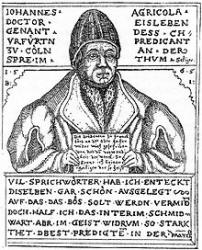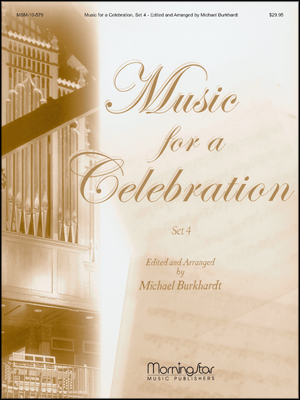- |
User Links
Ich ruf' zu dir, Herr Jesu Christ
Ich ruf' zu dir, Herr Jesu Christ
Author: Johann AgricolaTune: ICH RUF ZU DIR
Published in 48 hymnals
Representative Text
1 Ich ruf zu dir, Herr Jesu Christ,
ich bitt, erhör mein Klagen;
verleih mir Gnad zu dieser Frist,
laß mich doch nicht verzagen.
Den rechten Glauen, Herr, ich mein,
den wollest du mir geben,
dir zu leben,
mein Nächsten nütz zu sein,
dein wort zu halten eben.
2 Ich bitt noch mehr, o Herre Gott
du kannst es mir wohl geben -,
daß ich nicht wieder werd zu Spott,
die Hoffnung gib darneben;
voraus, wenn ich muß hier davon,
daß ich dir mög vertrauen
und nicht bauen
auf alles mein eigen Tun,
sonst wird's mich ewig reuen.
3 Verleih, daß ich aus Herzensgrund
den Feinden mög vergeben,
verzeih mir auch zu dieser Stund,
schaff mir ein neues Leben;
dein Wort mein Speis laß allweg sein,
damit mein Seel zu nähren,
mich zu wehren,
wenn Unglück schlägt herein,
das mich bald möcht verkehren.
4 Laß mich kein Lust noch Furcht von dir
in dieser Welt abwenden;
beständig sein ans End gib mir,
du hast's allein in Händen;
und wem du's gibst, der hat's umsonst,
es mag niemand erwerben,
noch ererben
durch Werke deine Gunst,
die uns erett' vom Sterben.
5 Ich lieg im Streit und widerstreb,
hilf, o Herr Christ, dem Schwachen;
an deiner Gnad allein ich kleb,
du kannst mich stärker machen.
Kommt nun Anfechtung her, so wehr,
daß sie mich nicht umstoße,
du kannst machen,
daß mir's nicht bringt Gefähr.
Ich weiß, du wirst's nicht lassen.
Source: Antwort Finden in alten und neuen Liedern, in Worten zum Nachdenken und Beten: evangelisches Gesangbuch (Bayern, Mitteldeutschland, Thüringen) #343
Author: Johann Agricola
 Agricola, Johann or Johannes (latinized from Schneider, (Schnitter) or Sartor, also called Magister Islebius), born April 20, 1492, at Eisleben, where his father was a tailor. During his University course at Wittenberg, Luther took a great interest in him, entertained him at his own table, took him with him to Leipzig for the disputation, in 1519, with Dr. Eck, and in 1525 procured for him the position of Rector of St. Andrew's School at Eisleben, and preacher at St. Nicholas's Church there. He remained in Eisleben till 1536, working hand in hand with Luther; but after his removal to Wittenberg, in 1536, as one of the lecturers in the University, he developed Antinomian views, and, in 1537, published a series of theses which Luther answered… Go to person page >
Agricola, Johann or Johannes (latinized from Schneider, (Schnitter) or Sartor, also called Magister Islebius), born April 20, 1492, at Eisleben, where his father was a tailor. During his University course at Wittenberg, Luther took a great interest in him, entertained him at his own table, took him with him to Leipzig for the disputation, in 1519, with Dr. Eck, and in 1525 procured for him the position of Rector of St. Andrew's School at Eisleben, and preacher at St. Nicholas's Church there. He remained in Eisleben till 1536, working hand in hand with Luther; but after his removal to Wittenberg, in 1536, as one of the lecturers in the University, he developed Antinomian views, and, in 1537, published a series of theses which Luther answered… Go to person page >Text Information
| First Line: | Ich ruf' zu dir, Herr Jesu Christ |
| Author: | Johann Agricola |
| Language: | German |
| Copyright: | Public Domain |
French
German
- Antwort Finden in alten und neuen Liedern, in Worten zum Nachdenken und Beten: evangelisches Gesangbuch (Bayern, Mitteldeutschland, Thüringen) #343
- Das neue und verbesserte Gesangbuch, worinnen die Psalmen Davids samt iner Sammlung alter und neuer Geistreicher Lieder, sowohl für privat und Hausandachten, als auch für den öffentlichen..(5th Aufl.) #504
- Davidisches Psalter-Spiel der Kinder Zions #d421
- Die Kleine Geistliche Harfe der Kinder Zions: oder auserlesene Geistreiche Gesänge, allen wahren heilsbergierigen Säuglingen der Weisheit, insonderheit aber allen Christlichen Gemeinden (4. Aufl.) #179
- Die Kleine Geistliche Harfe der Kinder Zions: oder auserlesene Geistreiche Gesänge, allen wahren heilsbergierigen Säuglingen der Weisheit, insonderheit aber allen Christlichen Gemeinden des Herrn... #179
- Ein Neues, Unpartheyisches Gesangbuch zum Allgemeinen Gebrauch des Wahren Gottesdienstes ... 1. Ausg. #d148
- Ein Unpartheyisches Gesang-Buch: enthaltend geistreiche Lieder und Psalmen, zum allgemeinen Gebrauch des wahren Gottesdienstes auf begehren der Brüderschaft der Menoniten Gemeinen... #300
- Ein Unpartheyisches Gesang-Buch: enthaltend geistreiche Lieder und Psalmen, zum allgemeinen Gebrauch des wahren Gottesdienstes auf begehren der Brüderschaft der Menoniten Gemeinen...(2nd verb. aufl.) #300
- Erbauliche Lieder-Sammlung zum Gottesdienstlichen Gebrauch in den vereinig-ten evangelisch-lutherischen Gemeinen in Pennsylvania ... 6. Aufl. #aad269
- Erbauliche Lieder-Sammlung zum Gottesdienstlichen Gebrauch in den vereinigten evangelisch-lutherischen Gemeinen in Pennsylvania ... 2. Aufl. #ad269 10 shown out of 43
Notes
Suggested tune: ICH RUF ZU DIR;
Four hymns by [Johannes Agricola] appeared in the early Lutheran hymnbooks, two of which were retained by Luther in Babst's Gesangbuch, Leipzig, 1545.
1. Ich ruf zu dir, Herr Jesu Christ. [Supplication.] Wackernagel, iii. pp. 54-55, gives two forms of this, in 5 stanzas of 9 lines, the first from Geistliche Lieder, Erfurt, 1531, the second from an undated broadsheet before 1530, entitled, "A new hymn of supplication for Faith, Love, and Hope, and for a Holy Life; composed by John of Eisleben, preacher to John Duke of Saxony." Fischer, i. 345, refers to the Nürnberg broadsheet, c. 1526, quoted in Wackernagel's Bibliographie, 1855, p. 89, and adds that in his opinion the disfavour into which Agricola fell after the outbreak of the Antinomian controversy caused the suppression of his name in the hymn-books. After appearing in Klug's Geistliche Lieder, 1529, the hymn was included in almost all subsequent hymn-books, and so recently as No. 379 in the Unverfälschter Liedersegen, 1851.
It is sometimes erroneously ascribed to Paulus Speratus, an assumption originating with the Riga Gesang-buch of 1664. It was a favourite hymn of Valerius Herberger, of P. J. Spener (who requested it to be sung at his deathbed), and of many others.
Translations in common use:—
1. Lord Jesu Christ, I cry to Thee. A good translation, omitting stanza iv., by A. T. Russell, as No. 200 in his Psalms & Hymns, 1851.
2. Lord, hear the voice of my complaint. A full and very good translation as No. 116 by Miss Winkworth in her Chorale Book for England, 1863.
Other translations are:—
(1) “I call on the, Lorde Jesu Christ," by Bp. Coverdale, 1539 ( Remains, 1846, p. 560), repeated, slightly altered, in the Gude and Godly Ballates (ed. 1568, folio 34), ed. 1868, p. 57. (2) " I cry to Thee, my dearest Lord," by J. C. Jacobi, 1122, p. 68; in his edition1732, p. 114, altered to "To Thee, 0 Lord, I send my cries," and thence as No. 310 in pt. i. of the Moravian Hymn Book 1754; omitted in 1789 and 1801; in the Supplement of 1808, stanzas i., iv. were included as No. 1082, and repeated in later editions altered to "To Thee I send my fervent cries." (3) "I cry to Thee, 0 Christ our Lord! " by N. L. Frothingham, 1870, p. 205. [Rev. James Mearns, M.A.]
--John Julian, Dictionary of Hymnology (1907)


 My Starred Hymns
My Starred Hymns



